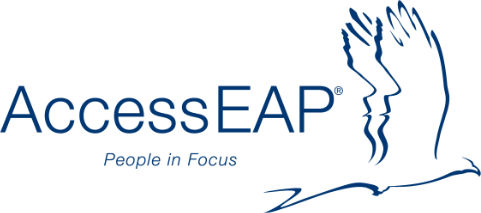
3 Things to do on R U OK? Day - Talk, Talk, Talk
When I started as CEO at AccessEAP about eight years ago, I would not have imagined that I would be talking about suicide prevention. Talking about my feelings, especially my feelings at work was something I was not entirely comfortable with. It made me feel vulnerable. Today I am passionate about the work that we do at AccessEAP. We talk about mental health and we encourage and support others to talk about mental health and suicide prevention. September 12th is an important day for us at AccessEAP. R U OK? Day is a theme we are passionate about and one of the busiest days in our Wellbeing Calendar. It is also closely aligned with our vision for all workplaces to have mentally healthy employees.
The "R U OK" Foundation aims to raise awareness and prevent suicide. Suicide in Australia is growing year on year, with a 9.1 per cent increase from 2017 to 2018 and has become the leading cause of death among people 15 – 44 years[1]. Mental health issues are one of several causes that contribute to this worrying trend, with depression present in 43 per cent of suicides between 2017 and 2018[1]. We are seeing an increase in organisations requesting support for their employees following the loss of an employee to suicide. The impact of suicide on families, friends, peers, colleagues is devastating and immeasurable, making it vital that we all become involved.
Throughout an adult's life, they will spend up to 4,821 days at work. This suggests that workplaces can and need to play a role in suicide prevention. Through our work at AccessEAP, and my own experience, I know that talking about mental health and suicide is challenging and confronting. People may feel helpless and unsure of what to say. People may experience anxiety about how people may respond if they ask, "R U OK?". What if they are not ok, what will I say or do? It is normal to feel anxious and to avoid asking or talking about mental health. Some of our organisations ask us to come to their workplaces but request that we don't talk about suicide, to soften our language because they are concerned about how their employees may react. I understand it can be confronting or challenging, I and the team at AccessEAP are committed to talking about mental health and suicide and to help others learn how to have those conversations. It is important to talk about mental health, to break down the stigma, to tackle the barriers which prevent people asking for help if we are to make a difference to the lives of people with who we work.
R U OK? Day creates an opportunity for managers and HR leaders to start a dialogue with their staff about mental health, to create an environment of acceptance and to normalise asking for help. Managers can play a vital role in the culture of their workplaces. The easiest way is through talking and encouraging others to talk, especially about uncomfortable topics such as mental health. Leaders can empower their employees and facilitate a culture where it is normal to talk about anxiety and depression. They can learn the steps or the skills on how to ask those who may be struggling and can provide helpful information and the support structures which employees may need. For tips on how to have a conversation on R U OK? Day, see our latest newsletter article, Time to Connect.
I could talk about a business case for creating mentally healthy workplaces, instead, I will encourage you to have a conversation about asking R U OK?
Sally Kirkright, CEO, AccessEAP
[1] Australian Bureau of Statistics 2018



